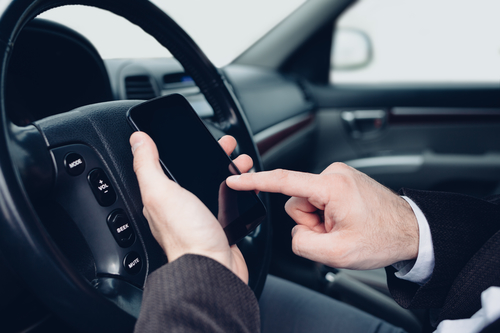The French government is set to ramp up its action against motorists who use their phones while driving.
Emmanuel Barbe, the government's road safety tsar, has announced that confiscating the licenses of drivers caught using their phones at the wheel will be written into the loi d'orientation des mobilités in an attempt to tackle risky driving.
The new measure, which will be part of the new €13.4 billion package to improve both France's transport networks and its carbon emission, will see licenses temporarily removed from the offender.
“The idea is really to annoy uncooperative drivers,” Barbe told French radio station Europe 1. “We do not want to deprive anyone of their license for months on end.”
READ ALSO:
- Revealed: These are the worst habits of French drivers
- 'Aggressive, thoughtless, arrogant': This is how bad French drivers really are
 Photo: AFP
Photo: AFP
According to a recent report on the bad habits of French drivers, it seems like the government could be on to something.
The report revealed that a total of six percent of French motorists are using their phones while driving on the motorway, compared to four percent in 2015.
That figure shoots up when it comes to observing the behaviour of truck drivers, 15 percent of whom drive with their phones in hand.
“Fifteen percent of fatal accidents on the motorway are due to inattentiveness,” Pascal Contremoulins, head of road safety at Sanef, a private company responsible for operating French motorways, told the French media last week.
“Motorists have not yet fully realised how dangerous it is to use their phones when behind the wheel,” he added.
In 2016, an An American study showed that sending a text message while driving multiplied the chances of an accident by 23 percent and the rise of smartphones has led to an increase in people using their devices on the roads.
At the moment French law only permits the suspension of a driving license if the driver is caught drink driving, driving under the influence of drugs or speeding by more than 40km/h.
Someone caught using their phone is currently subject to a fine of €135 and three points off their license.
The loi d'orientation des mobilités is expected to be adopted in the coming weeks.



 Please whitelist us to continue reading.
Please whitelist us to continue reading.
How about taking their car away as well?